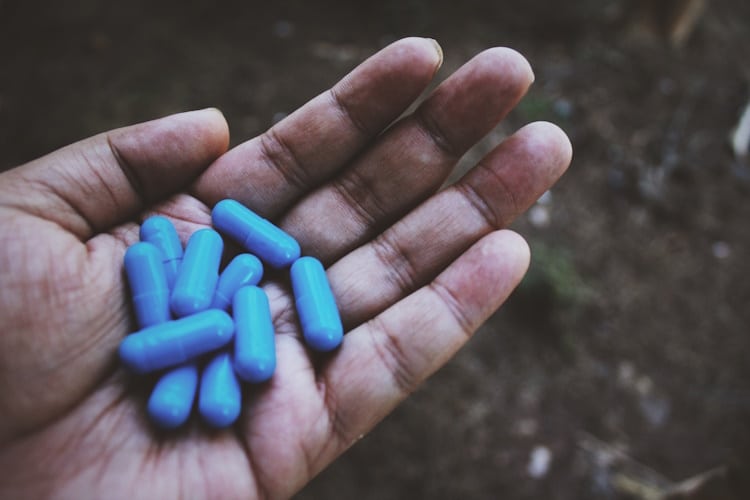Both prescription and over-the-counter medications can have possible side effects. However, one side effect often not thought of by the patient or mentioned by the physician prescribing medications is a side effect of complicating your love life. In other words, some medications can have devastating consequences on your sex drive, ability to achieve and maintain an erection and reach an orgasm.
4 common medications that may impact your sex life
Listed below are four commonly prescribed medications that may put a damper on activities in the bedroom:
1. Blood Pressure Medications
The primary side effect is how blood pressure medications can lead to erectile dysfunction. The main culprits are beta-blockers and diuretics. Diuretics or water pills such as Hydrochlorothiazide and beta-blockers like Atenoid are often the first drugs a physician may prescribe to control blood pressure. Unfortunately, an estimated 70% of men who have the side effect of erectile dysfunction will stop taking their blood pressure medication because of this.
Beta-blockers lower blood pressure by interfering with the sympathetic nervous system. However, diuretics relax the walls of the blood vessels. As a result, both medications can lead to erectile dysfunction by reducing blood flow to the penis.
Men should not stop taking a diuretic on their own until their blood pressure is under control. However, don’t suffer in silence – be sure to discuss with your physician about the problem and work together to look into other alternative medications that are less likely to cause erectile dysfunction.
2. Painkillers
Painkillers’ main effect on ruining your sex life is putting you at a higher risk of erectile dysfunction and a low testosterone level. Research has shown that long-term painkiller use, also known as opioids, diminishes the brain’s ability to signal the testicles to make testosterone. This results in extremely low levels of this vital hormone resulting in sexual dysfunction in bed.
Before taking a painkiller, your physician should check your testosterone level first. If this hormone is already low, adjustments can be made to control pain and improve testosterone levels.
3. Antidepressants
Sexual side effects from using antidepressants are common in men and women, affecting up to three-quarters of individuals taking them. The side effects of antidepressants include causing lack of desire for sex, erectile dysfunction, delayed ejaculation in men or inability to achieve an orgasm, and issues with arousal, comfort, and satisfaction.
The neurotransmitters in the brain are affected by the antidepressants classified as Selective Serotonin Reuptake Inhibitors (SSRIs – Prozac, Zoloft, etc.), which postpone ejaculation and can also lower testosterone.
Talk with your doctor to determine which antidepressant is best for you without affecting your sex life.
4. Antihistamines
During allergy season, if you notice that increasing the amount of an antihistamine tends to decrease your libido, there’s a reason. Common over-the-counter antihistamines, like Benadryl and Chlor-Trimeton, can lead to erectile dysfunction or ejaculation problems in men and may cause vaginal dryness in women. Another side effect of antihistamines can be sleepiness. This is where the timing of taking the medication comes into play. The medication should be cleared from the body within about 8 hours, so taking an antihistamine earlier in the day should result in less lack of desire later on at night.
Cough and cold medications can also contain antihistamines so reading the label is essential. Otherwise, you could be taking an antihistamine, lowering your sex drive, and not knowing it.
Dr. David Samadi is the Director of Men’s Health and Urologic Oncology at St. Francis Hospital in Long Island. He’s a renowned and highly successful board certified Urologic Oncologist Expert and Robotic Surgeon in New York City, regarded as one of the leading prostate surgeons in the U.S., with a vast expertise in prostate cancer treatment and Robotic-Assisted Laparoscopic Prostatectomy. Dr. Samadi is a medical contributor to NewsMax TV and is also the author of The Ultimate MANual, Dr. Samadi’s Guide to Men’s Health and Wellness, available online both on Amazon and Barnes & Noble. Visit Dr. Samadi’s websites at robotic oncology and prostate cancer 911.


